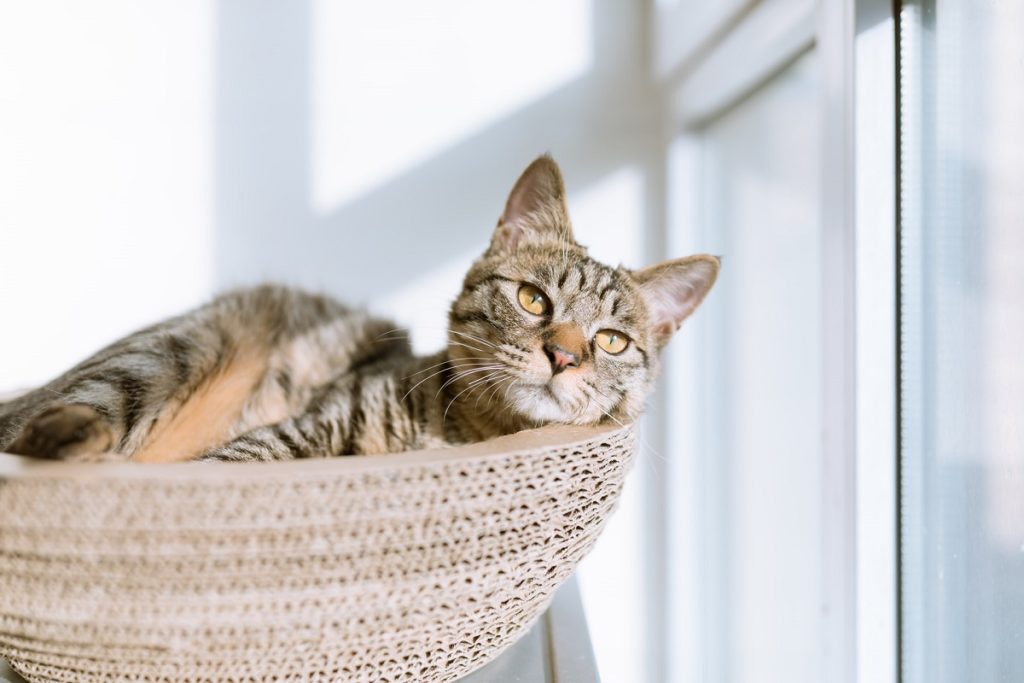More and more cat owners are considering spaying or neutering their cats. This is the process of safely making your cats sterile. Technically, spaying is for females and neutering is for males, but both processes can be referred to as neutering.
Neutering is a good option if you’re considering the health benefits of your pets. Sure, the procedure can cost around $200 for the surgery, but here are 5 reasons that can make you re-consider neutering as a good investment on your fur babies.
No Unwanted Kittens
You won’t have to worry about your cat fathering or giving birth to kittens, especially if you don’t want the burden of taking care of more cats in the house or don’t know a good forever home for them.
Given that there are 3.4 million cats that enter shelters in the United States every year, you, as a responsible pet owner, wouldn’t want to contribute to these statistics with unwanted pregnancies.
 An average cat can have up to 8 kittens per litter and can have up to three litters per year, given that a cat’s gestation period can last up to 72 days. This means that there is an overpopulation of cats since one cat can have as many as a hundred kittens in one lifetime. In the span of 7 years, two cats can produce enough progeny that, exponentially, can reach as many as 420,000 cats. Neutering prevents overpopulation and adding more cats to shelters, some of which are euthanized.
An average cat can have up to 8 kittens per litter and can have up to three litters per year, given that a cat’s gestation period can last up to 72 days. This means that there is an overpopulation of cats since one cat can have as many as a hundred kittens in one lifetime. In the span of 7 years, two cats can produce enough progeny that, exponentially, can reach as many as 420,000 cats. Neutering prevents overpopulation and adding more cats to shelters, some of which are euthanized.
Reduced Health Risks
Neutered female cats cannot develop uterine cancers. They’re also less prone to breast cancer, urinary tract infections, and hormonal changes. On the other hand, male cats cannot get testicular cancer and live 40 percent longer than male cats that aren’t neutered.
Reduced Symptoms of Heat
When a cat is in heat, their personality changes drastically and will try to mate with a cat of opposite sex in your home or try to escape to find one. If neutered, your pet will continue to feel the “call of the wild,” but at a much milder experience.
Male cats that aren’t unneutered will want to wander away from your home and will try to escape every chance it gets (which can be dangerous depending on where you live). They will also become aggressive with other male cats it comes across, which can increase their risk of injury or infection on open wounds. When neutered, male cats tend to be less aggrresive.
Both female and male cats, on the other hand, will have lower hormones or instincts to escape the house every time they see an opportunity. Their wanting to escape can increase the risk of them getting lost as well as any injuries or accidents they can get into.
A Cleaner Environment
Cats are generally self-cleaning pets. But when male and female cats get into heat, they can prove to be messy and have habits you might want to do without.
Male cats are very territorial and will spray their urine on walls and other vertical surfaces. This is to mark their territory: their urine scent will alert other male cats that this is his turf, while alerting female cats of a male presence they can mate with. Cat urine is filled with ammonia, which can really stink up your home.
Female cats, on the other hand, can pass bodily fluids that indicates they’re in heat. This is supposed to attract nearby male cats indicating that a fertile female cat is nearby.
No Serious Effect on Your Cat
 Aside from these benefits, there’s no reason your cat’s personality will change. It’s highly likely that your cat will be their same old self after they recover from their surgery.
Aside from these benefits, there’s no reason your cat’s personality will change. It’s highly likely that your cat will be their same old self after they recover from their surgery.
After the neutering procedure, they may have to wear a special cone to keep them from licking or biting their genitals while it’s healing. Most cats do not need special medication or after care once their genitals heal, but it’s recommended for all pet owners to take their cats to a vet check-up every year. They may gain a bit of weight after neutering, but if you have enough toys and allow it an active lifestyle, this shouldn’t be an issue.

